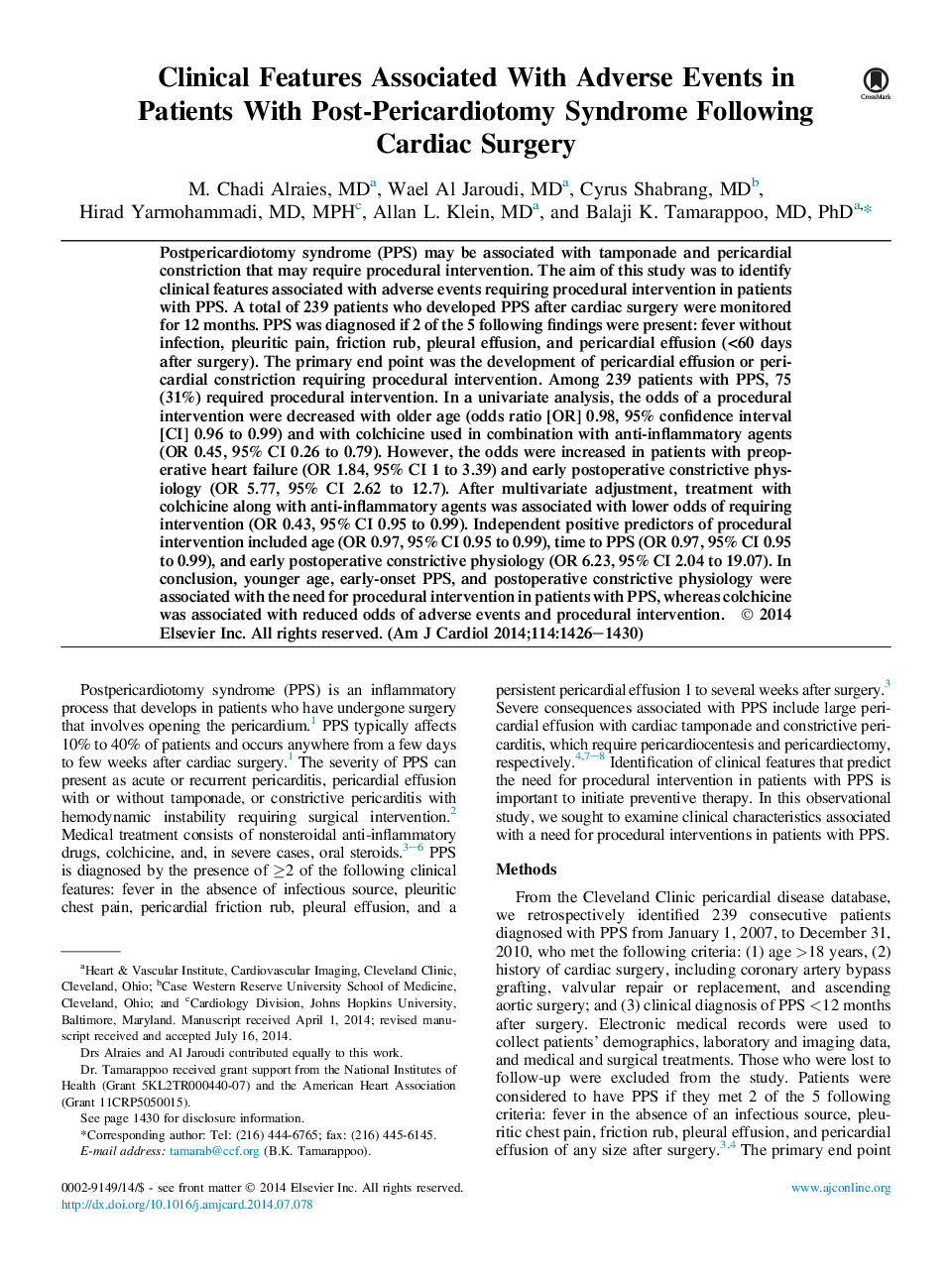| کد مقاله | کد نشریه | سال انتشار | مقاله انگلیسی | نسخه تمام متن |
|---|---|---|---|---|
| 2854323 | 1572155 | 2014 | 5 صفحه PDF | دانلود رایگان |
• Patients with PPS may require procedural intervention.
• We identified risk factors for procedural intervention in patients with PPS.
• Young patients with PPS were at greater risk for requiring intervention.
• Pericardial constriction early after surgery increased the risk for intervention.
• Treatment with colchicine was associated with lower risk for intervention.
Postpericardiotomy syndrome (PPS) may be associated with tamponade and pericardial constriction that may require procedural intervention. The aim of this study was to identify clinical features associated with adverse events requiring procedural intervention in patients with PPS. A total of 239 patients who developed PPS after cardiac surgery were monitored for 12 months. PPS was diagnosed if 2 of the 5 following findings were present: fever without infection, pleuritic pain, friction rub, pleural effusion, and pericardial effusion (<60 days after surgery). The primary end point was the development of pericardial effusion or pericardial constriction requiring procedural intervention. Among 239 patients with PPS, 75 (31%) required procedural intervention. In a univariate analysis, the odds of a procedural intervention were decreased with older age (odds ratio [OR] 0.98, 95% confidence interval [CI] 0.96 to 0.99) and with colchicine used in combination with anti-inflammatory agents (OR 0.45, 95% CI 0.26 to 0.79). However, the odds were increased in patients with preoperative heart failure (OR 1.84, 95% CI 1 to 3.39) and early postoperative constrictive physiology (OR 5.77, 95% CI 2.62 to 12.7). After multivariate adjustment, treatment with colchicine along with anti-inflammatory agents was associated with lower odds of requiring intervention (OR 0.43, 95% CI 0.95 to 0.99). Independent positive predictors of procedural intervention included age (OR 0.97, 95% CI 0.95 to 0.99), time to PPS (OR 0.97, 95% CI 0.95 to 0.99), and early postoperative constrictive physiology (OR 6.23, 95% CI 2.04 to 19.07). In conclusion, younger age, early-onset PPS, and postoperative constrictive physiology were associated with the need for procedural intervention in patients with PPS, whereas colchicine was associated with reduced odds of adverse events and procedural intervention.
Journal: The American Journal of Cardiology - Volume 114, Issue 9, 1 November 2014, Pages 1426–1430
